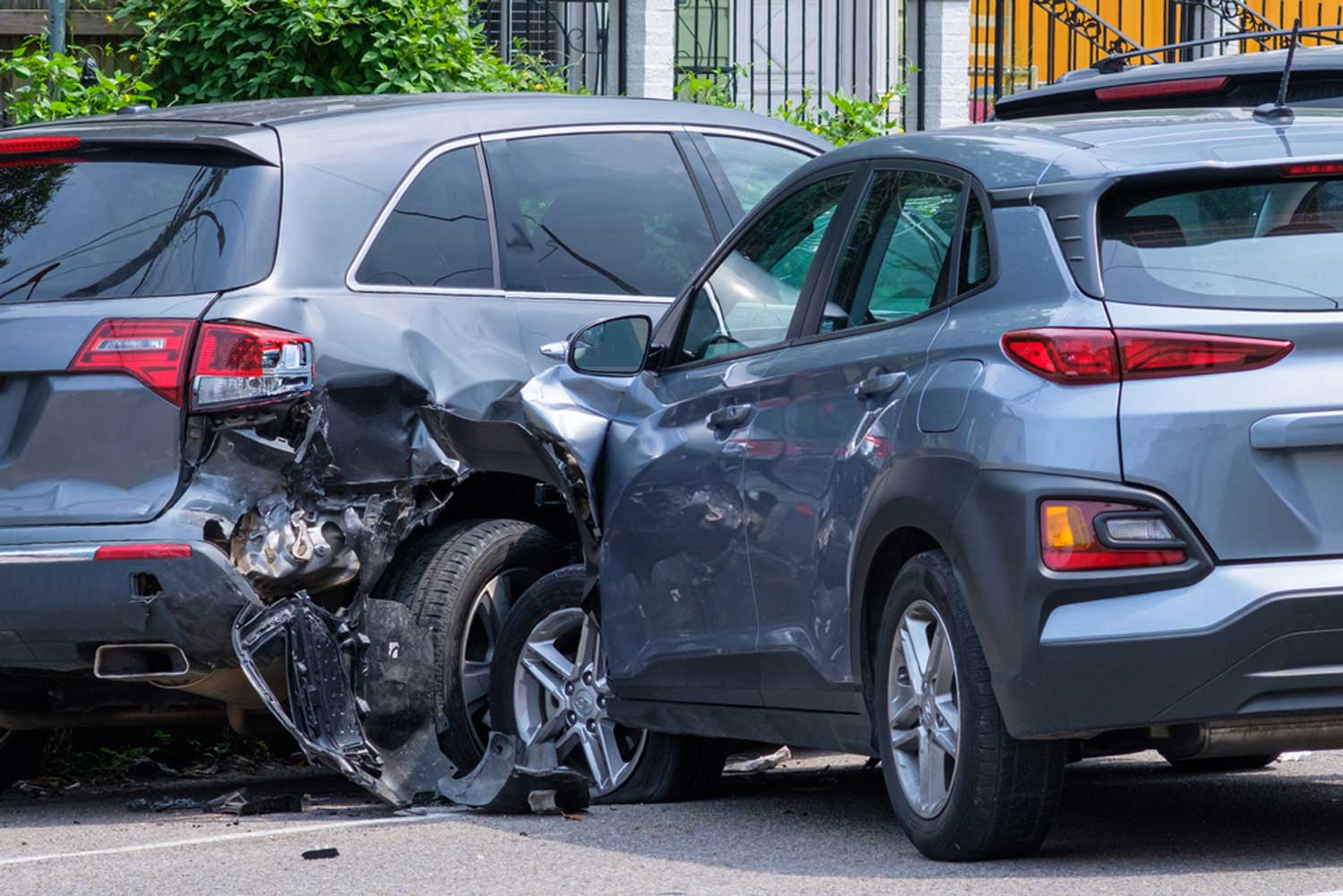What Does Collision Insurance Cover?
Collision insurance can cover the damage to your car in an accident or certain other circumstances.
 Shutterstock
Shutterstock
If you cause an accident and don't have collision insurance, you'll typically have to pay to repair your vehicle yourself. Most people can't afford to spend thousands of dollars to repair their cars. Instead, they opt to protect themselves with insurance. So, what does collision insurance cover? Here are the key details.
Coverage Provided by Collision Insurance
Collision insurance helps pay to repair your vehicle if you crash into an object (such as a car or traffic light pole). The insurance will pay you the amount needed to repair your vehicle up to your policy limits. Before paying out, the insurance company will reduce your payment by the deductible: an amount you agree to pay out of pocket.
Collision car insurance is part of a larger auto insurance policy. When purchasing a policy, you can select collision insurance as one of many types of coverage. This insurance can be one of the more expensive forms of coverage on your policy, depending on the limits you choose.
You select the total dollar amount of coverage you want to purchase. You also choose a deductible amount. In general, the insurance will cost less if you choose a lower coverage amount or increase your deductible amount. However, you should keep in mind the cost of your vehicle and your ability to pay the deductible amount out of pocket when selecting limits.
Pros and Cons of Collision Coverage
Potential pros
The main benefit of collision insurance is its ability to cover damage to your vehicle due to a collision, rollover, or when you hit an object. While no one hopes they cause an accident or hit a mailbox, mistakes can happen. This insurance will help you financially pay for the repairs or a car replacement in a severe incident.
Without this insurance, you could easily need to pay thousands of dollars to have a driveable vehicle again. Collision insurance can help you keep a safe and functioning car you may not otherwise be able to afford to repair (or replace on your own) after an accident.
Possible cons
Collision insurance can be useful — at the same time, it can cost a significant amount of money. If you can pay for vehicle repairs or replacement out of your own savings, you may decide the cost of a policy doesn't add value to your situation. This can make sense as a car ages and its value significantly decreases from its purchase price as a new vehicle.
It's important to understand that collision insurance doesn't cover all damage to your car. One common exception is damage from natural causes. For example, collision insurance won't cover the repairs needed if you park your vehicle outside and a hailstorm dents your car. Similarly, the policy doesn't pay for flood damage. Another exclusion is the theft of your vehicle.
While getting in an accident may result in medical expenses and damage to the property of others, collision insurance doesn't cover these costs. You'll need to pay for other types of auto insurance — such as personal injury protection or liability insurance — to have coverage for these potential situations.
How Much Does Coverage Cost?
According to the Insurance Information Institute, the average collision insurance policy costs $290 per year — although this number can vary. Collision insurance costs depend on several factors that may influence pricing at each insurance company.
A few examples of the many factors that can influence collision insurance rates include:
- Coverage limits
- Deductible
- Where you live and keep your car
- The vehicle being insured
- Your driving record
- How much you drive
- Age
- Gender
- Marital status
- Credit history
- Policy discounts
How Much Collision Insurance Should You Get?
If you are leasing a vehicle or owe money on a car loan, your lease or loan documents likely require you to have collision insurance. You should read those documents to find the minimum amount of coverage you're allowed to carry — although you may want to carry more to protect yourself. In general, you want your collision car insurance limits to be high enough to repair or replace any insured vehicles that may get damaged in an accident.
As you weigh your options, you can review these details should you need to ask yourself again: what does collision insurance cover exactly? It's up to you to decide whether you want this coverage, how much to purchase, and what deductible is right for your situation. If you require assistance, don't hesitate to contact a car insurance agent. These professionals can help examine your circumstances and work with you to determine the proper amount of coverage for your situation.
Written by humans.
Edited by humans.
 Lance Cothern
Lance CothernI started reading everything I could about personal finance while I attended college. It turns out that was one of the smartest decisions I could have made. Now, I want to share that knowledge with you. Using what I've learned through my education and experience, I aim to help you make informed decisions throughout the car buying and lending process while saving money at the same time.
Related articles
View more related articles